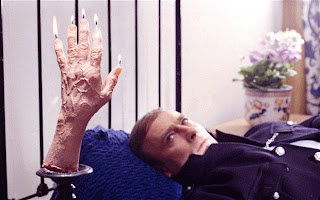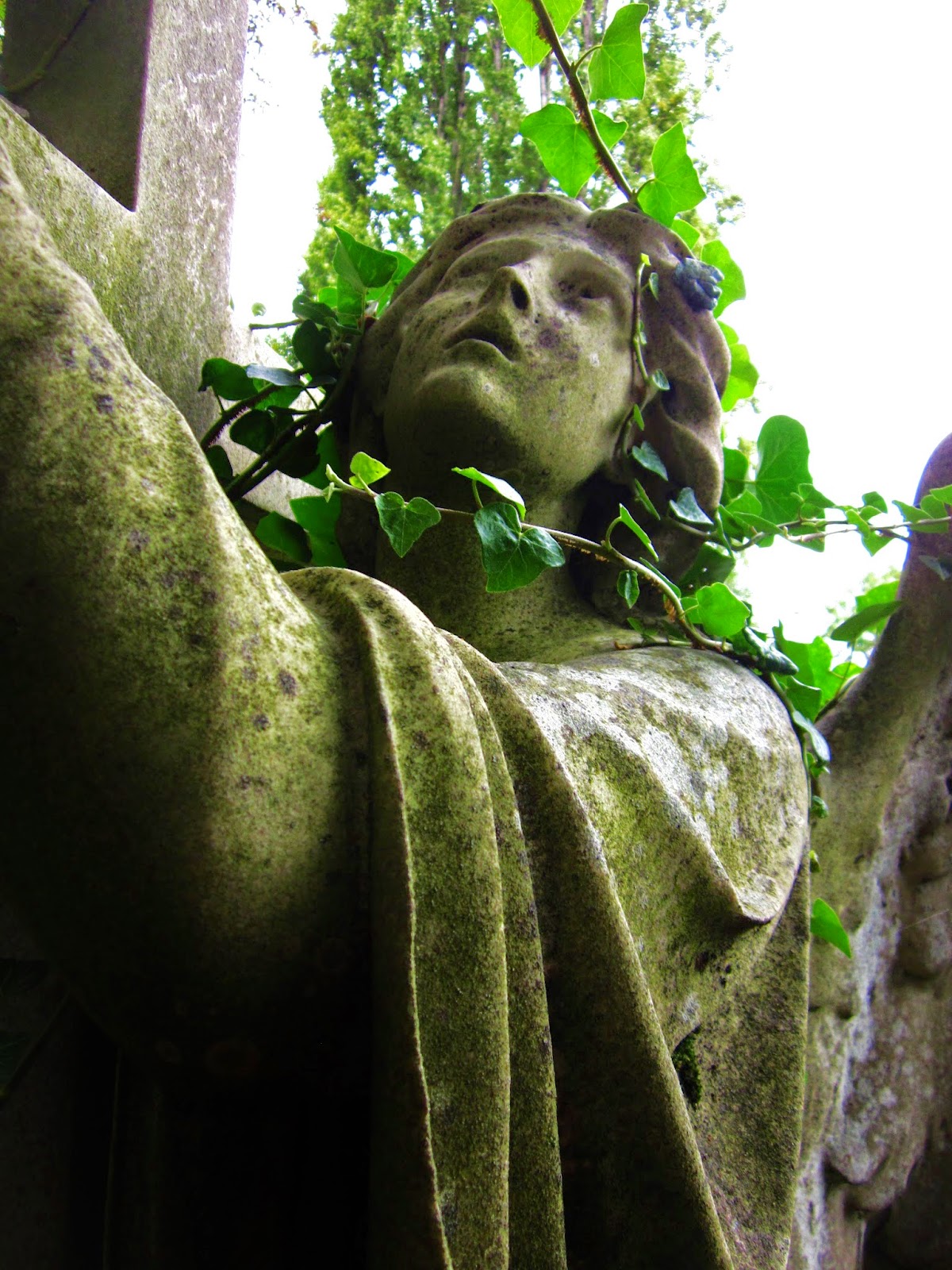Audiodrome#4: The Wicker Man
Head over to Paracinema.net to check out my latest instalment of Audiodrome: Music in Film. This month I’ve been listening to Paul Giovanni’s inspired score for Robin Hardy’s folk-horror masterpiece, The Wicker Man. Heavily informed by paganism and old folk music, Giovanni’s meticulously researched soundtrack combines adaptations of traditional pieces, poems and original compositions.
Why not pick up the latest issue of Paracinema while you’re there? Amongst its lurid delights are articles such as Panic in Detroit: RoboCop and Reagan’s America by Andreas Stoehr; Blood on the Rubber Chicken: Horror Parodies of the Early ’80s by Mike White; and Peter Jackson’s Heavenly Creatures from Hell by Todd Garbarini. All great stuff, written by hardcore fans of genre films for hardcore fans of genre films.
The following article was published on Paracinema.net on 23rd January 2012
Informed by ancient rituals, paganism and indigenous folk music. A truly evocative work.
Released in 1973 as part of a double bill with Don’t Look Now, The Wicker Man tells the story of a devout Christian policeman who visits a remote Scottish island to investigate the disappearance of a young girl. Snubbed by the residents, who insist they’ve never heard of the girl, Sgt Howie (Edward Woodward) continues his investigation uncovering ancient pagan beliefs still held by the islanders as he goes. By the time he discovers the real reason he was summoned to the island, it is too late to escape the devastating fate that awaits him…
In the BBC documentary The History of Horror, Mark Gatiss sites The Wicker Man as an example of a short-lived cycle of British horror films he dubs ‘folk horror.’ These films, which also include Blood On Satan’s Claw and Witchfinder General, drew inspiration from folklore, nature and ancient religious rites, and were set against backdrops of agricultural communities and rural superstition. The soundtrack of The Wicker Man is fittingly informed by such ancient rituals, paganism and indigenous folk music. Its composer, New Yorker Paul Giovanni, meticulously researched traditional Irish, Scottish and English folk music, and gathered together a group of prog-folk musicians to assist with performing and recording the score he crafted. The one-off band was called Magnet. From bawdy pub tunes to lilting folk ballads to erotic courtship/fertility rituals, the soundtrack of The Wicker Man sounds rustically authentic and, as horror film scores go, utterly unique. Like the film itself, the music initially seems rather folksy and benevolent; but scratch the surface, listen to the lyrics, and all manner of sinister connotations are conjured from the dark, earthy folk airs therein.
Opening Music is a rendition of a Robert Burns ballad inspired by the 1692 McDonald Clan massacre called The Highland Widow’s Lament. Another of Burns’ ballads was adapted by Giovanni who used lyrics from various modern English translations to pen the uplifting ditty about frolicking in the fields with a lover, Corn Rigs. The Maypole Song, featured in the scene where Sgt Howie visits the school and sees the boys and their teacher singing and dancing around a may pole, is based on the traditional Irish drinking song The Rattlin’ Bog. In the film it’s adapted as a cumulative fertility song in which each verse contains increasing details about the contents of a tree (“And on that tree there was a limb, And on that limb there was a branch, And on that branch there was a nest, And in that nest there was an egg” etc) ruminating on the cycle of life, death and rebirth. Elsewhere, Chop Chop, with its blaring bagpipes, fiddles and drums, is based on the tune of the English nursery rhyme Oranges and Lemons, which features the line “Here comes a candle to light you to bed, Here comes a chopper to chop off your head”, while closing music Sunset was inspired by a Bulgarian folk song and features Maurice Murphy on trumpet (Murphy also played the trumpet solo on the theme for Dallas!). At the film’s climax when the islanders gather for their sacrifice they sing Summer Is Icumen In, the oldest known song in the English language, performed to the tune of Willy O’Winsbury – a traditional Scottish ballad by Francis James Childs that dates back to the Eighteenth century (though some argue it is set to the tune of a different Childs ballad). The same tune provides the basis for the track Procession, which plays out like a march in waltz time with clarinets and tuba.
As well as being a horror film, The Wicker Man also exhibits traits associated with musicals. The score is largely diegetic; much of it is actually seen performed as part of the onscreen narrative. Giovanni and Magnet appear onscreen throughout the film, most notably in the scene set in The Green Man pub when Sgt Howie arrives to book a room for the night. Giovanni himself is seen singing the forlorn Gently Johnny, an original song written especially for the film. Another original composition which sounds uncannily like an old folk tune is The Landlord’s Daughter, a bawdy, lecherous number sang by the merry patrons of the pub. The cast sang many of their own vocals onscreen, even Sir Christopher Lee, who along with Diane Cilento, provided vocals on Tinker of Rye. Britt Eckland however, had her voice dubbed throughout the whole film. When her character Willow sings her eponymous song, the vocals heard in the film are actually those of Rachel Verney.
Giovanni had planned to release an LP of the songs performed and recorded by Magnet, but this project never came to fruition. The vocals recorded for the LP were those of Lesley Mackie, who appeared in the film as Daisy – the school girl who ties a beetle to a nail and watches with glee as it goes round and round “until it’s right up tight to the nail.” She leant her vocals to several songs for the LP, most notably Willow’s Song and Opening Music.
The soundtrack of The Wicker Man was not released properly until 2002 by Silva Screen Records, when the original studio recordings intended for the Magnet LP were located. This release features the songs sourced from the full studio recordings and incidental music lifted directly from the audio-track of the film. Anyone serious about obtaining the soundtrack should seek out the Silva Screen records release; it is vastly superior to the early Nineties Trunk Records release: a ‘music and effects’ reel cobbled together using tapes from Pinewood Studios.
One of my favourite songs from the soundtrack is Willow’s Song. Attempting to seduce Sgt. Howie from an adjoining room as he prepares for bed (and attempts to pray away his sexual urges), she sings this song, dancing naked and banging the walls in time to the rhythm. Covered by contemporary bands such as Sneaker Pimps and Doves, and brandishing alluring siren-like vocals and a hypnotic, swooning rhythm, it perfectly encapsulates the dark and primitive sexuality brimming beneath the surface of The Wicker Man.
Enjoy.
And remember, “Shocks are so much better absorbed with the knees bent.”



